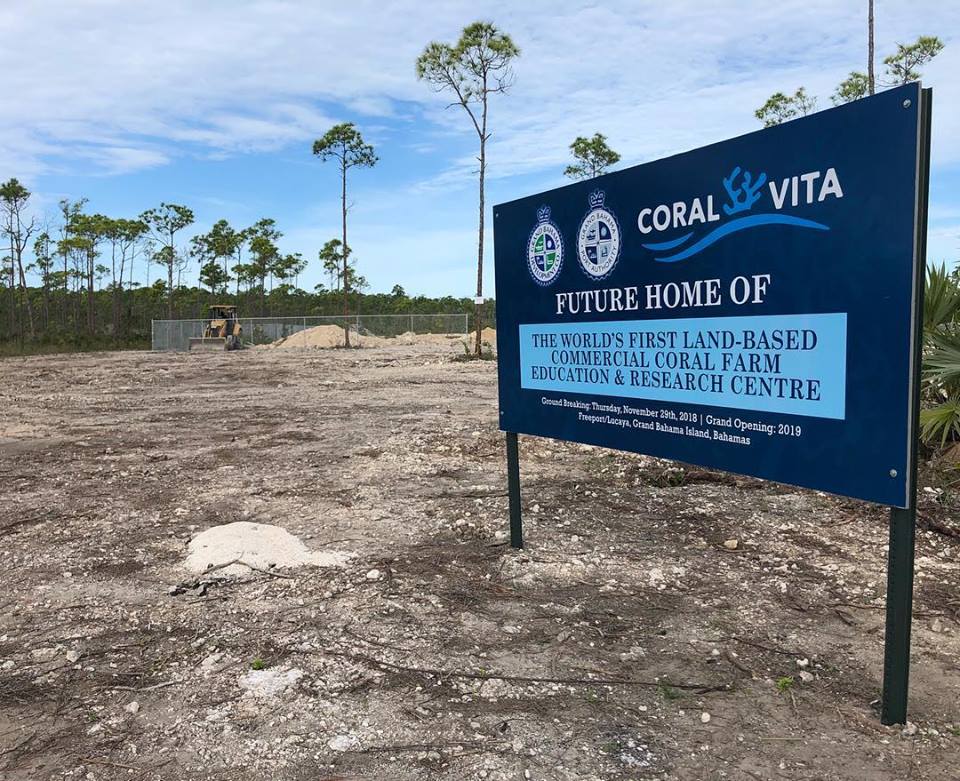Can We Save The Reefs By Growing Coral On Land?
A start-up’s land-based vision of preserving our oceans.
“I’m optimistic about the future,” explained Jean-Michel Cousteau when we sat down for a conversation in his Santa Barbara office earlier this winter.
Given all the dire reports we hear regularly about the state of our oceans, the comment from the 80-year-old diver caught me off guard. Son of iconic French ocean explorer Jacques Cousteau, he’d just returned from a voyage down the Amazon, through the Caribbean, before eventually pulling into port in Florida.
“The youth are the future decision makers, the old way is dying off, and they see the world much differently,” continued Cousteau, who’s spent over 70 years looking at the world with his head underwater. “They understand what is happening now. Things have changed, they get it. They see a better future for our oceans.”
When it comes to the world’s reefs, the future is now. Across the planet reefs are suffering from acidification, bleaching and warming ocean waters. It’s been estimated that by 2050, over 75 percent of the planet’s reefs will be dead.
“That last bleaching event didn’t get a lot of news, but it was actually one of the most comprehensive bleaching events the world has ever seen,” explained surf explorer Captain Martin Daly when Stab spoke with him last year. “The Barrier Reef, Hawaii, all of the Western Pacific, all the west coast of Indonesia…I don’t know about the Maldives, I think they missed out this time. They got smashed before. But, yeah. It was tragic.”
Now, a start-up company called Coral Vita, is trying to do something about coral’s dire situation. Founded by Sam Teicher and Gator Halpern, who met at the Yale School of Forestry & Environmental Studies while working on their Master of Environmental Management degrees in 2012, after a few beers one night they settled on an idea: coral farming.
“I brought up my experience helping launch a UN-funded coral farm with ELI Africa and the Mauritius Oceanography Institute,” Teicher explains in a blog post. “I had been amazed by the promise around reef restoration. I saw fishermen setting up their traps a hundred yards away from a coral farm in a once-devastated lagoon because there was so much more life. Coral’s rebounding where before they had been dying. Schoolchildren were hopping in the water to experience marine biology in the wild.”
Determining that the conventional, grant-funded restoration projects weren’t addressing the problem in a large enough scope, the two friends endeavored to create a business out of restoring damaged coral around the world and see if the power of economics could be leveraged.

A solution? Maybe. A step in the right direction? Absolutely.
“As Gator and I dove deeper into the issue, we reckoned this was something worth pursuing: creating a company that could deliver financially sustainable, high impact, and large-scale coral reef restoration,” Teicher continues.
Thinking outside the box, Teicher and Halpern endeavored to establish land-based coral farms around the world. The first one is currently under construction in the Bahamas.
Traditionally, coral restoration starts with growing coral fragments in aquatic nurseries in the ocean. This can be problematic when ocean temps rise and young corals are killed off. A few years ago, I was in the Maldives and got to participate in a coral restoration project. It was incredibly fulfilling…until everything we planted died as a result of warmer ocean water.
Rather than leave things up to chance, Coral Vita has figured out a system for growing coral in a land-based facility. They’re leaning on a technique known as “microfragmenting,” which can grow coral 50 times faster than as if it was in the ocean.
“Many coral species that serve as critical building blocks for reefs (such as Brain or Great Star corals) grow too slowly to be feasible for restoration projects using ocean-based nurseries. Now, Coral Vita can grow these corals in months rather than decades,” reads a description on CoralVita.co. “Land-based coral farming enables the usage of assisted evolution techniques to improve coral resiliency to changing oceanic conditions that threaten reef health. Corals that are native to each restoration project can be raised to be more tolerant to threats such as warming temperatures or acidification, as we can control their growing conditions.”
But how does a company actually make money doing all this? Coral Vita is taking a multi-pronged approach. They have developed various business models to work with hotels and resorts, government organizations, corporations, non-profits, private citizens and communities, you can even sign-up for their “adopt-a-coral” program.
Coral Vita says that farming coral on land helps protect the nurseries from weather, boating traffic and fluctuations in water temp. And by establishing the nurseries on land they can produce a variety of corals that may be better suited for a restoration project in a specific area. Once the coral is mature enough, trained divers install it back into its natural environment.
“Sooner rather than later, Coral Vita’s land-based farming offers a viable solution to counter large-scale degradation,” they claim.
Conceivably, in the not-too-distant-future, every surf resort would have a coral farm next to the ping pong table and hot tub.





Comments
Comments are a Stab Premium feature. Gotta join to talk shop.
Already a member? Sign In
Want to join? Sign Up